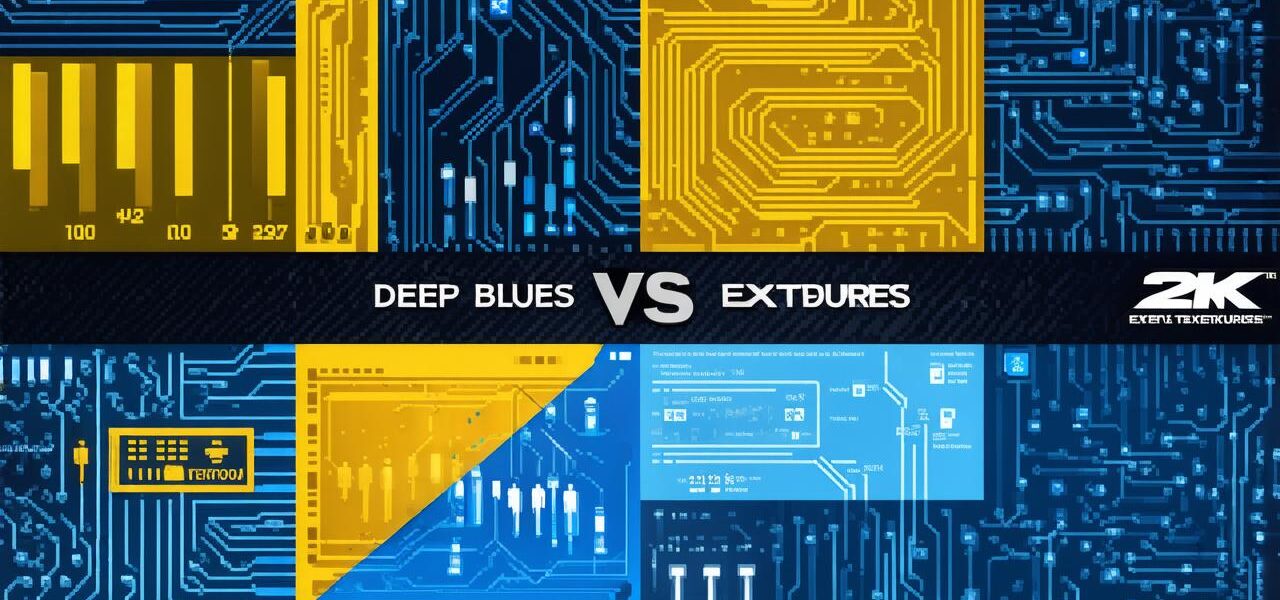
Comparing Careers: Blockchain Developer vs. Data Scientist
If you are interested in pursuing a career in technology, two roles that have been gaining popularity in recent years are blockchain developer and data scientist. Both professions require a combination of technical skills and expertise, but they also differ significantly in their day-to-day activities, earning potential, and job outlook.
Blockchain Developer: What They Do and How Much They Earn
A blockchain developer is responsible for designing, building, and maintaining decentralized applications (dApps) on the blockchain platform. They work with various programming languages, such as Solidity for Ethereum, Java for Hyperledger Fabric, and Go for EOS, to create secure and scalable dApps.

Blockchain developers also need to have a strong understanding of cryptography, distributed systems, and smart contracts. They collaborate with cross-functional teams, including product managers, designers, and QA engineers, to ensure that their dApps meet the requirements and specifications of users and stakeholders.
According to Glassdoor data, the average base salary for a blockchain developer in the US is $137,000 per year, with an additional average bonus of $40,000. However, it’s worth noting that salaries can vary widely depending on factors such as location, experience level, and company size.
Data Scientist: What They Do and How Much They Earn
A data scientist is responsible for analyzing and interpreting large datasets to identify patterns, trends, and insights that can help organizations make informed decisions. They use statistical techniques, machine learning algorithms, and data visualization tools to extract meaningful information from raw data.
Data scientists also need to have a strong understanding of data sources, such as databases and APIs, and programming languages, such as Python and R, to manipulate and analyze data. They collaborate with cross-functional teams, including product managers, designers, and business analysts, to ensure that their insights are relevant and actionable.
According to Glassdoor data, the average base salary for a data scientist in the US is $105,000 per year, with an additional average bonus of $20,000. However, as with blockchain developers, salaries can vary widely depending on factors such as location, experience level, and company size.
Pros and Cons of Each Career
Blockchain Developer Pros
- High demand for blockchain technology, leading to ample job opportunities
- Opportunity to work on cutting-edge technologies and applications
- Competitive salary and bonus packages
- Ability to work remotely or in a dynamic startup environment
Blockchain Developer Cons
- Steep learning curve, requiring extensive knowledge of cryptography, distributed systems, and smart contracts
- Limited job opportunities outside the tech industry
- High-stress work environment due to the complex nature of blockchain development
Data Scientist Pros
- Growing demand for data-driven insights in various industries
- Opportunity to work with large datasets and cutting-edge technologies
- Competitive salary and bonus packages
- Ability to work on diverse projects and collaborate with cross-functional teams
Data Scientist Cons
- Steep learning curve, requiring extensive knowledge of statistics, machine learning, and data analysis
- Limited job opportunities outside the tech industry
- High-stress work environment due to the complex nature of data science
Case Studies and Real-Life Examples
Blockchain Developer Case Study: Ethereum Smart Contracts
Ethereum is one of the most popular blockchain platforms for building dApps, and smart contracts are a crucial component of dApp development. A blockchain developer responsible for developing an Ethereum smart contract would need to have a strong understanding of Solidity, the programming language used to write smart contracts on the Ethereum platform.
One real-life example of a successful Ethereum dApp built using smart contracts is Cryptokitties, a decentralized game that allows players to breed and sell digital cats as non-fungible tokens (NFTs). The game generated $13.3 million in revenue within the first 24 hours of launch and has since raised over $20 million.
Data Scientist Case Study: Netflix Recommendation System
Netflix is one of the world’s largest streaming services, with over 150 million subscribers worldwide. To keep its users engaged and satisfied, Netflix uses data science techniques to recommend personalized content to each user based on their viewing history, ratings, and other demographic information.
One real-life example of a successful data science project at Netflix is the recommendation system for TV shows. The system analyzes millions of user ratings and viewership data to identify patterns and trends that can help Netflix recommend new shows to its users.
Frequently Asked Questions (FAQs)
* How long does it take to become a blockchain developer or data scientist?
It typically takes 2-3 years to acquire the necessary technical skills and experience to become a blockchain developer or data scientist, depending on your background and starting point.
* Can I work remotely as a blockchain developer or data scientist?
Yes, both roles can be done remotely, allowing you to work from anywhere in the world. However, it’s important to have a good internet connection and strong communication skills to collaborate with cross-functional teams effectively.
* How much experience do I need to become a blockchain developer or data scientist?
While there is no specific amount of experience required to become a blockchain developer or data scientist, having some relevant experience in programming, data analysis, or project management can be helpful.
Summary
In conclusion, both blockchain developers and data scientists are highly sought-after roles that require technical skills and expertise. While blockchain development offers opportunities to work on cutting-edge technologies and applications, data science provides the opportunity to analyze large datasets and make informed decisions based on insights. Ultimately, the choice between these two careers will depend on your interests, skills, and career goals.



